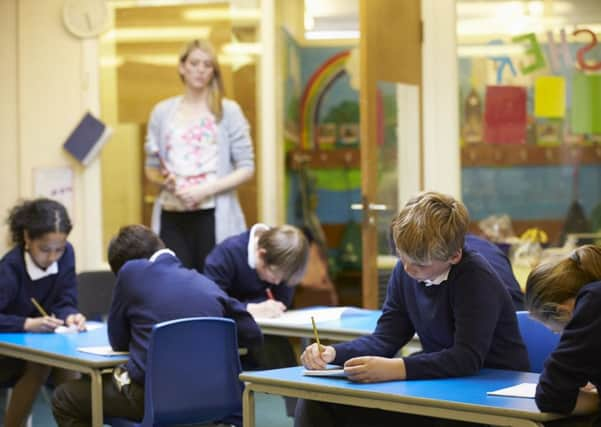Stress warning over SNP primary school tests plan


Concerns that children could receive a narrower education as a result of testing are also raised in the document compiled by the think-tank Institute for Public Policy Research (IPPR) Scotland.
The report has been based on a discussion among education experts organised by the IPPR in conjunction with Renaissance Learning, a company specialising in online assessment.
Advertisement
Hide AdAdvertisement
Hide AdThe experts looked at plans for “standardised assessments” in primary schools – a key reform of the Scottish Government’s education programme which aims to close the attainment gap that sees children from well-off backgrounds outperform their poorer counterparts in the classroom.
The possibility of colleges and universities using test data to make better informed offers to children from deprived families was discussed, with some arguing that doing so could help to close the attainment gap.
The document also warned of the “dangers posed by unintended consequences” – such as concern about stress placed on parents, teachers and children by tests.
A participant noted that the Northern Irish system placed “enormous stress” on children and their parents.
“One participant noted that children there began preparing for and talking about the examinations several years before they sat them, placing enormous stress on themselves and on their parents,” the report said.
The report referred to international evidence which suggested “few countries with a system of standardised assessment have been able to avoid a narrowing of the curriculum and teachers ‘teaching to the test’, leading to a decline in the quality of education children receive and a restricting of the topics teachers cover in class”.
It also warned against using tests to “pigeonhole” children according to capability.
There was a risk of harming children by accelerating their learning before they were ready or holding them back based on just one indicator of their progress.
Advertisement
Hide AdAdvertisement
Hide Ad“This may affect pupils’ own confidence in their ability and their aspirations,” it said.
James Bell, Renaissance Learning’s director of professional services, said: “It is important that any framework we implement avoids the pitfalls of ‘teaching to the test’.
“Rather than just analysing what students have learnt, we need a system that acts as a measure of improvement. Advances in technology and online assessment can help.”
A Scottish Government spokesman said: “The new standardised assessments will inform teachers’ professional judgments and will automatically generate individual reports to show where a child is doing well and where further support may be required.
“Assessments will be age and stage appropriate, and pupils will prepare for them in the same way as other routine classroom learning activities – there will be no pass or fail mark.”